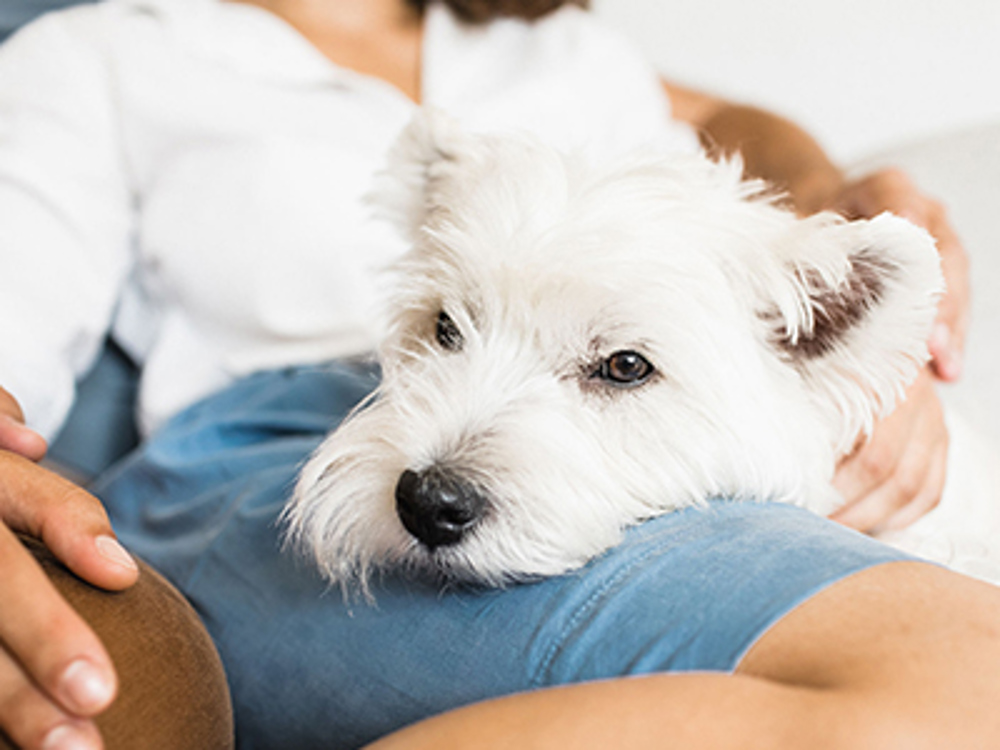
The dangers of cleaning bottles
Cleaning products themselves are likely to taste unpleasant and so may not be particularly attractive to dogs. Brightly coloured packaging or interestingly shaped bottles on the other hand may appear interesting to them, or seem like an excellent toy to play with. Make sure that all cleaning products cannot be accessed by your dog and that dogs are kept away from areas that are being cleaned, or have recently been cleaned.
Chlorine bleaches
Dogs may come into contact with these household cleaners by chewing the containers or drinking from recently cleaned toilets. Bleach diluted in water may be less harmful, but can still cause dribbling and stomach problems.
More concentrated solutions of bleach can cause corrosive injury to the mouth or gut and may cause further complications if splashed in the eye or on the skin. Bleach should never be mixed with other cleaning products.
Detergents (laundry detergent, soaps and many household multipurpose cleaners)
Many of these substances contain chemicals which can cause salivation and stomach problems. If an animal vomits after drinking or eating these substances, it can make the vomit frothy or foamy. This may increase the risk of vomit getting into the lungs and causing breathing difficulties.
Liquid capsules/sachets used in washing machines are highly concentrated detergents, which may appear attractive to pets and children. These concentrated substances may cause more extreme tummy upsets and can lead to dehydration if untreated, or can damage the eye through direct contact.
Oven cleaners, drain cleaners and other caustics/corrosives
These substances can cause tissue damage. If licked up by your dog, splashes from these may also cause injury to the eyes and the skin surrounding the mouth. Effects from these cleaners can include salivation, stomach problems, ulceration, chemical burns and difficulty breathing or swallowing.
Other common items found in cleaning cupboards that could harm your dog
- Dishwasher tablets
- Dishwasher salt
- Kettle descalers
- Metal polishes
Tips on how to poison-proof your home
A large number of instances of bleach ingestion come from dogs drinking from recently treated toilet bowls. To prevent your dog from doing this, make sure that you always put the toilet lid down after cleaning and try to remember to keep bathroom doors closed.
What to do if you think your dog is poisoned
If you think that your dog may have eaten, touched or inhaled something that it shouldn't have, speak to your vet straight away.
Never try to make your dog sick. Trying to do this can cause other complications, which may harm your dog.
Things to tell your vet
In an emergency you can help your veterinary practice make an informed decision as to whether your dog needs to be treated by them and, if so, what the best treatment would be. Where possible you should provide your veterinary practice with the following information:
- What poison you think your dog has been exposed to (i.e. chocolate, ibuprofen etc.). Include any product names, or lists of ingredients if relevant
- How much they may have been exposed to (i.e. 500mg, 500ml, one tablet etc, even approximations may help)
- When your dog was exposed to the poison (i.e. five minutes, five hours or five days ago)
- If your dog has been unwell and, if so, what clinical effects have been seen
It is easier for a vet to care for a poisoned dog if it is treated sooner rather than later. If you are in any doubt, don't wait for your dog to become unwell before calling for advice.
What to take to your vets
If you do need to take your dog to your veterinary practice, make sure that you take along any relevant packaging, or a sample of the poison, i.e. parts of plant or fungi. Always make sure that you yourself are protected and cannot be poisoned in turn.
How to use this information
The information is intended to be used to prevent poisoning by raising awareness of certain poisons, rather than as a document to be used in an emergency. If you think that your dog has been poisoned, or has come into contact with potentially poisonous substances, contact your local veterinary practice immediately.
Think your dog may be affected?
If you're worried about your dog's health, always contact your vet immediately!
We are not a veterinary organisation and so we can't give veterinary advice, but if you're worried about any of the issues raised in this article, please contact your local vet practice for further information.
Find a vet near you
If you're looking for a vet practice near you, why not visit the Royal College of Veterinary Surgeons' Find a vet page.
